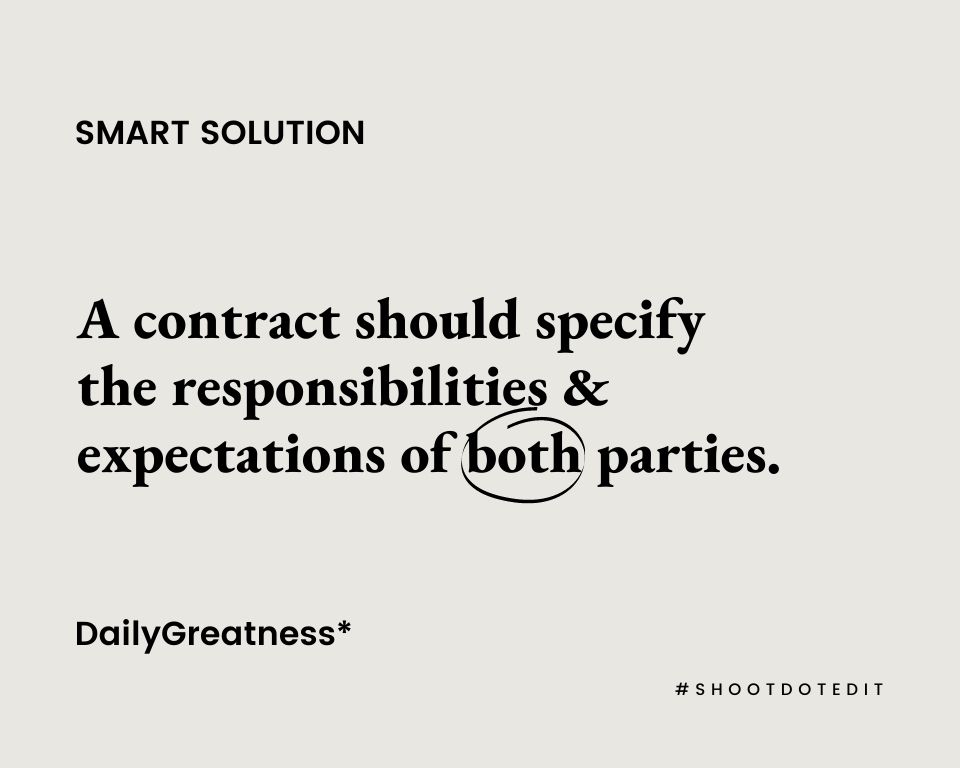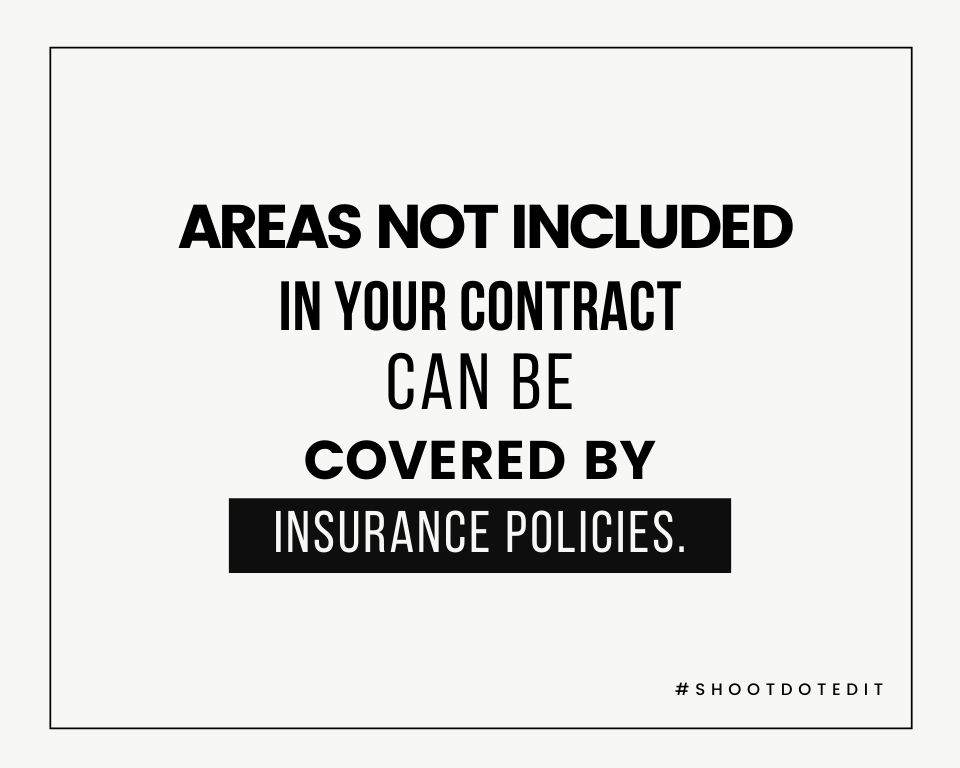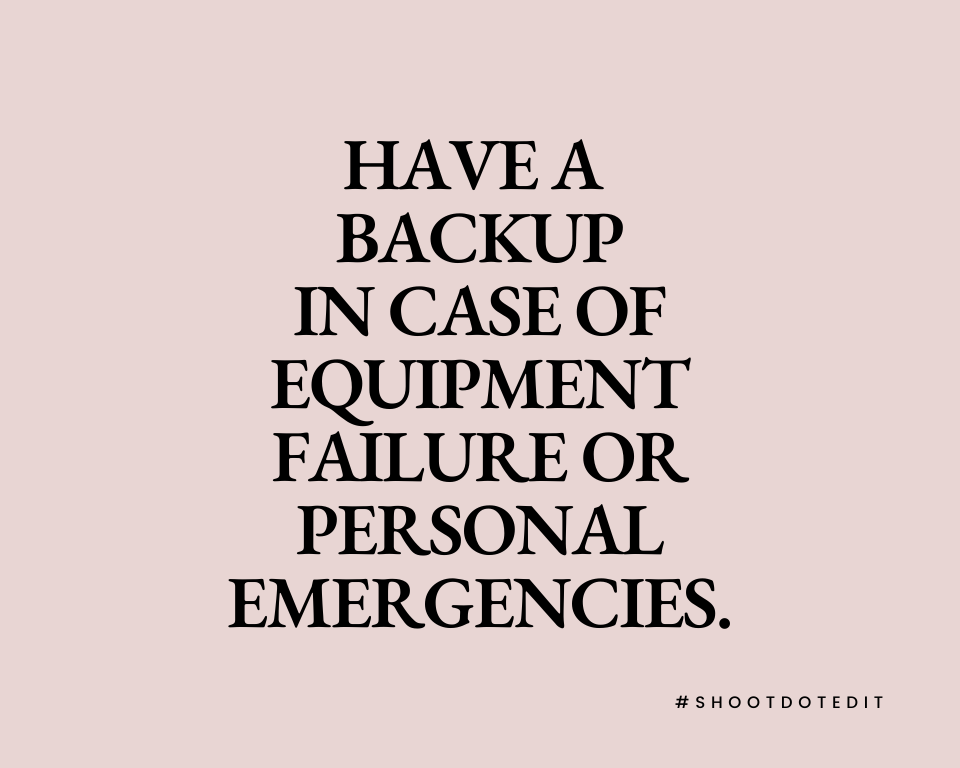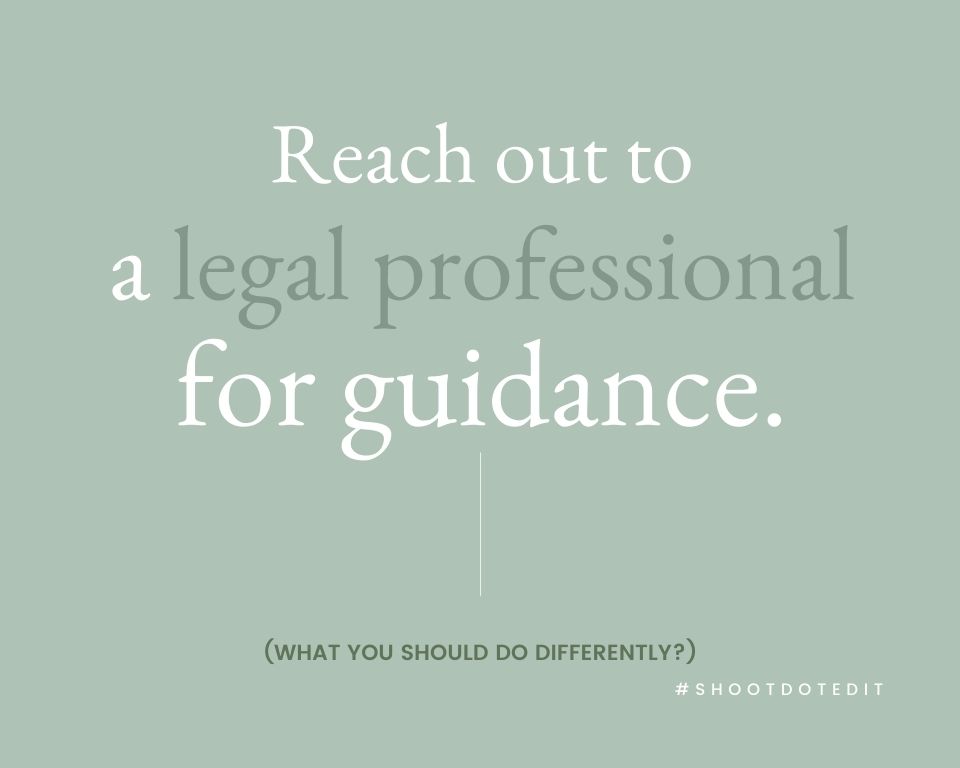
Top Legal Traps For Wedding Photographers
1. The Absence of a Wedding Photography Contract

Not having a solid contract, which serves to protect you in case legal problems arise, is one of the topmost legal traps wedding photographers can fall into. It’s great when both parties can trust each other and verbally agree upon a set of deliverables. However, having a legally binding agreement doesn’t just make the deal legitimate, it also has the power to protect you in case anything goes wrong. Therefore, it’s crucial to have a wedding photography contract that specifies the responsibilities and expectations of both parties. This would include your cancellation or rescheduling policies, refunds, turnaround time, pricing, etc.
Suggested Read: All You Need To Know Before Starting A Photography Business
2. Stuffing Your Contract With Clauses
Though it’s perfectly fine to research and look for areas of conflict between wedding photographers and their clients, blatantly copy-pasting clauses in your contract might do you more harm than good. Every photographer can have different experiences and business strategies, so certain clauses and policies that might be useful to someone else could be irrelevant for you. Similarly, ignoring or accidentally leaving out clauses that could be crucial to your business could create problems for you. These could include a force majeure clause (an act of god such as a pandemic) or a refund policy clause in case the wedding is called off. Even though you may not have control over a situation, it could still turn out to be a legal trap that you could fall into, and you need to be prepared to handle that too.
Related Read: The Ultimate Guide To Wedding Photography Contracts
3. No Insurance Policies

Insurance policies can protect you and your business in areas that might not be covered in your contract. So you could consider purchasing liability insurance and equipment insurance policies to safeguard yourself from potential lawsuits. These could protect you against defamation claims, accidental injuries to the client, property damage, loss of images due to cybercrime, or any other technology-related issues. Equipment insurance can prove to be beneficial in case your equipment gets damaged or lost. Always research, take expert advice, and read the offer documents carefully before signing, as not all insurance policies might cover everything you are looking for.
Related Read: Wedding Photography Liability Insurance Explained
4. Not Communicating Clearly
This might sound odd, but lack of clear communication is also one of the top legal traps for wedding photographers. Sometimes couples book and pay you for your services, but in some cases, couples might book you, but their parents or other relatives could make the payments. In another scenario, the bookings and the payments might be made by the parents or relatives. In this case, you would need to identify any legal obligations towards the paying party and who will be signing the contract. To avoid any issues later, you could encourage your couples or their parents that, if possible, they do both – the booking and payment.
Once everything is sorted out, clearly explain the contract to your clients without using too many technical or confusing terms. Also, inform them about the process of cancellation, rescheduling, non-refundable money, and the mode of communication you will be using.
Related Read: Navigating Wedding Cancellations And Refunds During The Pandemic
5. Not Having a Plan B

Having a backup plan – whether technical or related to your availability – is crucial in the wedding photography business. If you fail to provide the promised services, you could be in for some serious trouble and might soon find yourself in a legal trap. To prevent such a situation, you’d need backup plans for your equipment and yourself. In case your equipment gets damaged, you should be ready with another set that works. Backing out from a wedding photography gig because your gear malfunctioned would be extremely unprofessional. Also, if you can’t reach the venue due to an accident or any other unforeseen circumstance, you should have a backup or another photographer ready to cover for you.
6. Not Updating Legal Documents
With time, your wedding photography business is likely to grow and evolve. Your contract and other legal documents should too. Forgetting or ignoring this step could invite problems for you and your business too. In this age of social media, if you want to share your work on your Facebook or Instagram and your contract doesn’t mention a permission clause about the same, go ahead and incorporate the points. Include clauses on late delivery of images, reproduction rights, responsibility waiver in certain events, and also any changes made to policies regarding a second shooter or an associate substituting for you.
Further Read: How To Start A Photography Business: A Wedding Photographer’s Guide

Experience could teach you many things about the wedding photography industry, but falling into a legal trap because of not having a signed contract or updated legal documents is an experience best avoided. In this case, prevention would be better than all the legal hassle you might have to face if a client decides to take you to court. However, we are not asking you to completely ignore that feeling of mutual trust you establish with your clients. We are simply suggesting that you keep all your documents in order so that your paperwork can protect you in case things go wrong someday. Still, we are not experts and would highly recommend that you reach out to an experienced legal professional if you consider making any such changes.
At ShootDotEdit, we love sharing tips that help you hone your wedding photography skills and also help you run your business seamlessly. We also offer professional photo editing services to help lessen your post-production workload. To learn more about our services, you can take a look at our pricing plans.
Please note: ShootDotEdit is here to provide quality content to help wedding photographers succeed. We are not legal professionals, nor do we receive any benefits from any of the companies or advice mentioned in this article. If you want to learn more about photography copyright laws and what to do if your photos are used without your permission as a US-based photographer, Professional Photographers of America is a trusted source that can help, as can most law professionals.


Leave a comment